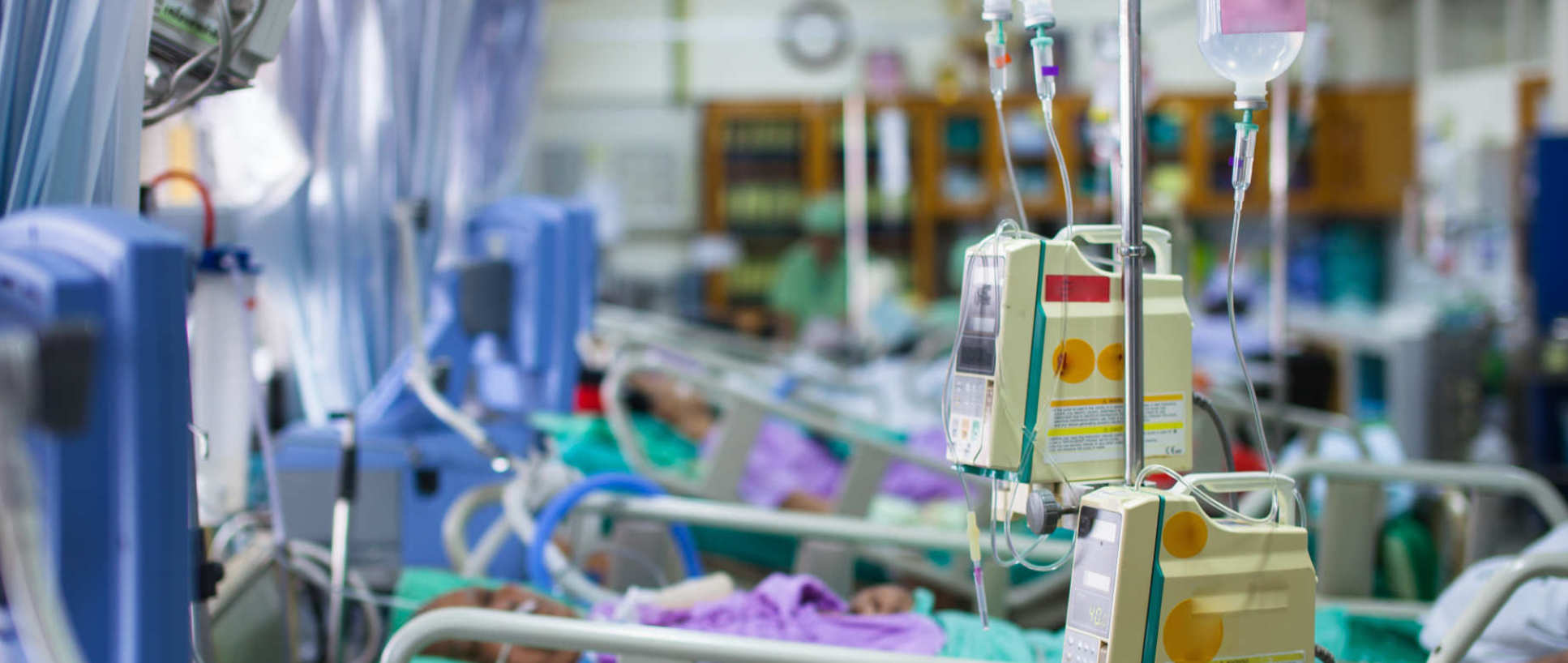BibTex format
@article{Shepherd:2016:10.1097/CCM.0000000000001652,
author = {Shepherd, SJ and Newman, R and Brett, SJ and Griffith, DM and Enhancing, Rehabilitation After Critical Illness Programme Study Investigators},
doi = {10.1097/CCM.0000000000001652},
journal = {Critical Care Medicine},
pages = {1198--1205},
title = {Pharmacological Therapy for the Prevention and Treatment of Weakness After Critical Illness: A Systematic Review.},
url = {http://dx.doi.org/10.1097/CCM.0000000000001652},
volume = {44},
year = {2016}
}
RIS format (EndNote, RefMan)
TY - JOUR
AB - OBJECTIVES: ICU-acquired weakness is a common complication of critical illness and can have significant effects upon functional status and quality of life. As part of preliminary work to inform the design of a randomized trial of a complex intervention to improve recovery from critical illness, we sought to identify pharmacological interventions that may play a role in this area. DATA SOURCES: We systematically reviewed the published literature relating to pharmacological intervention for the treatment and prevention of ICU-acquired weakness. STUDY SELECTION: We searched MEDLINE, EMBASE, CINAHL+, Web of Science, and both U.S. and European trial registries up to July 2014 alongside reviews and reference lists from populations with no age or language restrictions. We included studies that reported a measure of muscle structure or physical function as an outcome measure. DATA EXTRACTION: We estimated pooled odds ratios and 95% CI using data extracted from published articles or where available, original data provided by the authors. Assessment of bias was performed using the Cochrane Collaboration's risk of bias tool. DATA SYNTHESIS: Ten studies met the inclusion criteria. The current body of evidence does not support the use of any pharmacological agent in this setting, although maintaining euglycemia may reduce the prevalence of critical illness polyneuropathy. CONCLUSIONS: At present, no pharmacological intervention can be recommended to prevent or treat ICU-acquired weakness. Further research is required into this field to include more novel agents such as myostatin inhibitors. Challenges in the conduct of research in this area are highlighted.
AU - Shepherd,SJ
AU - Newman,R
AU - Brett,SJ
AU - Griffith,DM
AU - Enhancing,Rehabilitation After Critical Illness Programme Study Investigators
DO - 10.1097/CCM.0000000000001652
EP - 1205
PY - 2016///
SN - 1530-0293
SP - 1198
TI - Pharmacological Therapy for the Prevention and Treatment of Weakness After Critical Illness: A Systematic Review.
T2 - Critical Care Medicine
UR - http://dx.doi.org/10.1097/CCM.0000000000001652
UR - http://hdl.handle.net/10044/1/30678
VL - 44
ER -



 Critical care involves the care of the sickest patients in the hospital. Critically ill patients have usually been through a significant insult to their body (such as trauma, infection, burn) and have developed organ failure and require life-support. Critical Care is the largest theme bringing together clinicians and scientists from diverse backgrounds and includes collaborative research from hospitals throughout north-west London. Investigations range from evaluating biological mechanisms of organ failure through to the development of innovative technologies which allow the short-term and long-term support and recovery of organs.
Critical care involves the care of the sickest patients in the hospital. Critically ill patients have usually been through a significant insult to their body (such as trauma, infection, burn) and have developed organ failure and require life-support. Critical Care is the largest theme bringing together clinicians and scientists from diverse backgrounds and includes collaborative research from hospitals throughout north-west London. Investigations range from evaluating biological mechanisms of organ failure through to the development of innovative technologies which allow the short-term and long-term support and recovery of organs.